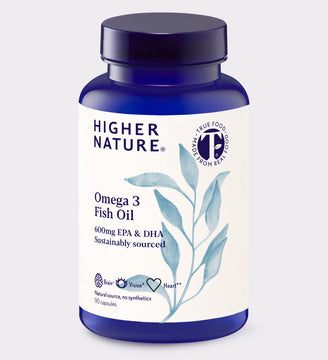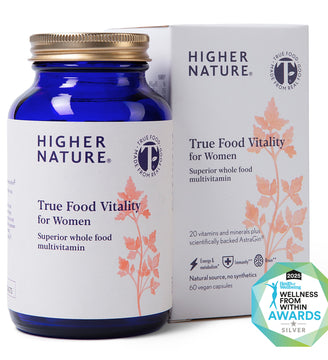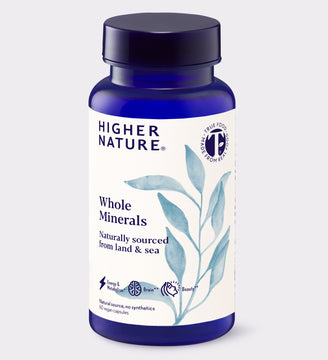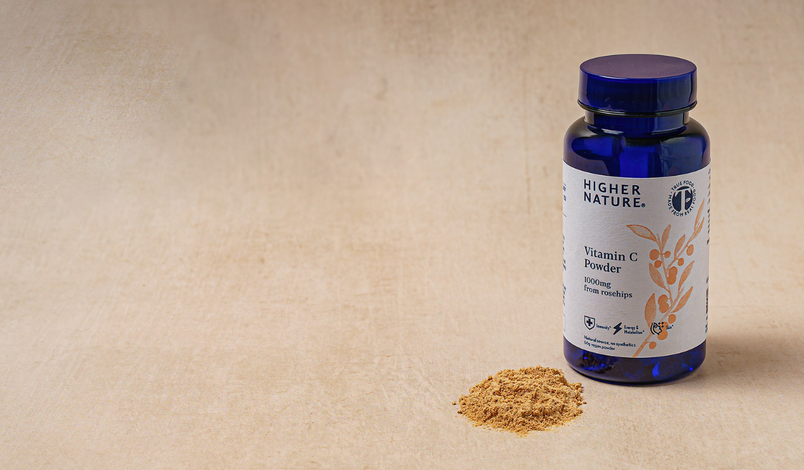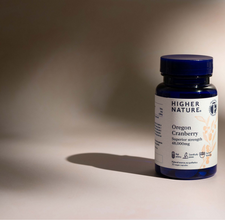
Healthy cholesterol: getting to the heart of the matter
Higher Nature Nutrition Team
Cholesterol is a type of fat or lipid found in all cells in the body. It forms part of the cell’s outer layer and is transported around the body in blood attached to a protein.
This combination of fat and protein is called a lipoprotein. Lipoproteins can be high density (HDL) or low density (LDL).
Although we often hear how cholesterol is bad for us, and too much of the wrong type is, some cholesterol is actually essential for good health.
The key to healthy cholesterol is balance: high levels of HDL and low levels of LDL
Sitting comfortably? Here’s the low-down on those lipoproteins:
High density or HDL cholesterol is mostly made up of protein and a small amount of fat. It helps to protect against heart disease by transporting fats away from the arteries and is often referred to as ‘good’ cholesterol.
Low density or LDL cholesterol is made up of mostly fat and a small amount of protein. It can cause cholesterol levels to build up in the arteries, increasing the risk of heart disease and is often referred to as ‘bad’ cholesterol.
Diet has a huge role to play when trying to keep your cholesterol in check
Cholesterol is produced naturally within the body and some comes from the foods you eat. Dietary cholesterol is mainly found in eggs, liver and shellfish (prawns). Eating foods that are naturally high in cholesterol doesn’t usually raise your cholesterol levels. Most cholesterol is made by the body, in the liver, so it doesn’t need cholesterol from food.
However, your cholesterol levels are influenced by the other foods you eat, fats especially, and saturated fats (found in meat, cheese, butter, cream and pastries) are the biggest culprits. They raise your LDL levels of cholesterol, which increases your risk of heart disease and stroke.
If you’ve been told by your doctor you have high cholesterol, eating a healthy diet can make a huge difference, especially if you’re overweight.
Reduce your intake of saturated fats and replace them with unsaturated fats. Unsaturated fats actually help to reduce levels of LDL cholesterol and are found in vegetable oils, sunflower spreads, nuts and avocados. Coconut oil and butters are generally believed to be better for you as they are heat-stable and do not create toxic trans-fats when heated, nor do they raise cholesterol levels.
Fibre also helps to reduce LDL cholesterol, so eat more oat or rice bran, wholegrains (brown rice, whole wheat, millet and quinoa) and any beans (red kidney, soya etc). For extra fibre you could try supplementing with flaxseed; it has a gentle bulking effect but needs to be taken with plenty of water.
And increase your intake of heart-healthy fruit and veg: bananas, tomatoes and broccoli are all good sources of potassium, which can help to support a healthy heart.
In addition to healthy food choices, specific nutrients can also lend support. Vitamin B6, vitamin B12 and folic acid may help to maintain healthy levels of an amino acid called homocysteine. Too much has been linked with an increased risk of coronary heart disease, stroke and peripheral vascular disease, and so balanced levels of homocysteine may help maintain a healthy heart and vascular system. TMG (tri-methyl-glycine) also supports healthy homocysteine metabolism.
Red yeast rice extract contains plant sterols that have been found to help reduce cholesterol levels and co-enzyme Q10 is thought to have a beneficial effect on blood pressure and cholesterol.
If you have any concerns about your heart, consult your GP or healthcare provider.


